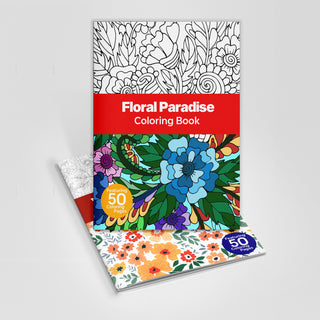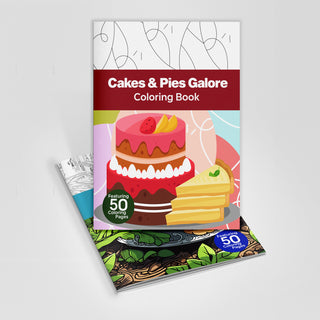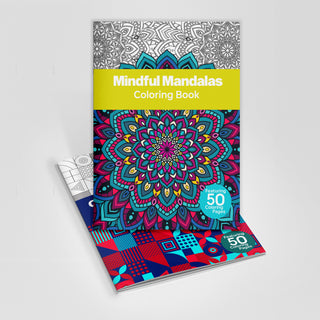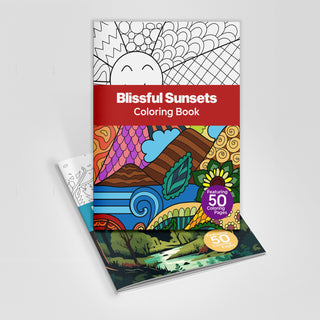Have you ever felt a burning desire to express your deepest thoughts, dreams, and emotions, but struggled to find the right words?
In a world that often encourages us to keep our innermost selves hidden, it's easy to lose touch with our own voice and unique perspective.
However, there is a simple yet profound practice that can help you reclaim your authenticity and unleash your inner voice: journaling.
Journaling is a transformative journey of self-discovery and self-expression. It goes beyond the surface-level words and delves into the depths of our souls.
It's a sacred space where we can pour out our thoughts, hopes, fears, and dreams onto the pages, without judgment or limitations.
Through journaling, we can reconnect with our true selves, explore our passions, and navigate the winding path of personal growth.
In this article, I invite you to embark on a journey of self-exploration and empowerment through the power of journaling.
Together, we will uncover the multitude of benefits this practice offers. From cultivating mindfulness and gratitude to setting goals and solving problems, journaling becomes a trusted companion, guiding us on our quest for self-improvement and fulfillment.
Throughout this article, I will share personal stories, insights, and practical tips to help you unlock the full potential of journaling.
Whether you're a seasoned writer or someone who has never picked up a pen to journal before, this is an open invitation to discover the magic that awaits within the pages of your journal.
So, grab your favorite notebook, find a quiet corner, and let your thoughts flow freely onto the paper.
Together, we will unleash the power of journaling and illuminate the path to a more authentic and fulfilled life.

1. Reflective Journaling: Exploring Your Thoughts And Emotions
Reflective journaling is a powerful tool for self-exploration and gaining insights into your thoughts and emotions.
It provides a safe space to examine your experiences, challenges, and triumphs.
By writing about your day-to-day encounters, you can delve deeper into your own psyche and gain a better understanding of yourself.
How I Use Reflective Journaling
Personally, I find reflective journaling to be an essential part of my self-discovery journey. At the end of each day, I take a few moments to sit with my journal and reflect on the events and emotions I experienced.
I ask myself questions like "What were the highlights of my day?" or "What challenges did I face and how did they make me feel?"
This practice allows me to process my experiences, celebrate my victories, and acknowledge any areas that may need improvement.
Benefits Of Reflective Journaling
Reflective journaling offers numerous benefits.
First, it enhances self-awareness by providing an opportunity to observe your thoughts, emotions, and patterns of behavior.
It allows you to identify triggers and gain insights into your reactions.
Second, it serves as a valuable outlet for emotional expression, allowing you to unload your thoughts and feelings onto paper. This can bring a sense of relief and catharsis.
Moreover, reflective journaling helps track personal growth over time.
By revisiting previous entries, you can witness your progress, recognize recurring themes, and gain a broader perspective on your journey.
It also promotes self-compassion as you offer understanding and support to yourself through your writing.
Incorporating reflective journaling into your routine can be as simple as setting aside a few minutes each day to jot down your thoughts and feelings.
Remember, there are no right or wrong answers—this practice is about personal exploration and growth.
So grab your journal, find a quiet space, and let your thoughts flow onto the pages. Reflective journaling has the power to unlock profound insights and foster a deeper connection with yourself.
2. Gratitude Journaling: Cultivating A Positive Mindset
Gratitude journaling is a wonderful practice that focuses on acknowledging and appreciating the positive aspects of your life.
It involves intentionally reflecting on the things you're grateful for, big or small, and documenting them in your journal. This simple act can have a profound impact on your overall well-being and perspective.

How I Practice Gratitude Journaling
Incorporating gratitude journaling into my daily routine has been transformative. Each morning, I start by writing down three things I am grateful for.
These often range from a beautiful sunrise to the support of loved ones or a personal achievement such as having practiced yoga everyday this week.
Taking the time to reflect on these blessings sets a positive tone for the day ahead and helps me cultivate an attitude of gratitude.
Benefits Of Gratitude Journaling
Gratitude journaling offers a myriad of benefits. It shifts your focus from what might be lacking in your life to what you already have, fostering a sense of contentment and abundance.
By consistently acknowledging the positive aspects of your life, you train your mind to seek out and appreciate the good, even in challenging times.
Moreover, gratitude journaling can improve your overall well-being.
Research suggests that regularly practicing gratitude can reduce stress, enhance optimism, and increase happiness levels. It helps reframe your perspective and develop resilience by reminding you of the positive aspects even during difficult moments.
By incorporating gratitude journaling into your daily routine, you create a habit of noticing and appreciating the small joys in life.
Whether it's the warmth of the sun on your skin or the laughter shared with a friend, capturing these moments of gratitude in your journal cultivates a positive mindset and fosters a greater sense of fulfillment.
3. Creative Expression Journaling: Unleashing Your Inner Artist
Creative expression journaling is a delightful way to tap into your artistic side and unleash your imagination (as an avid scrapbooker, I especially like this one!).
It involves using various creative techniques, such as drawing, doodling, painting, or collaging, to visually represent your thoughts, emotions, and experiences in your journal.
How I Practice Creative Expression Journaling
As a lover of art and creativity, I embrace creative expression journaling as a means of self-expression.
Whenever I feel the need to explore my emotions or convey my ideas visually, I turn to my journal.
I may create colorful mandalas, sketch landscapes, or simply let my pen flow freely to create abstract designs.
This process allows me to communicate and connect with myself on a deeper level.
Benefits Of Creative Expression Journaling
Engaging in creative expression journaling has a multitude of benefits.
First and foremost, it provides a non-verbal outlet for self-expression. Sometimes, words alone may not fully capture our feelings or experiences, but through artistic expression, we can communicate in a more holistic and intuitive way.
Creative expression journaling also promotes mindfulness and relaxation.
When you immerse yourself in the creative process, you enter a state of flow, where time seems to dissolve, and worries fade away. It becomes a form of meditation, allowing you to be present in the moment and find solace in your creative endeavors.
Moreover, creative expression journaling sparks imagination and fosters problem-solving skills.
It encourages you to think outside the box, explore new possibilities, and discover unique perspectives. It can also serve as a source of inspiration, igniting new ideas and fostering personal growth.
Whether you're an experienced artist or someone who hasn't picked up a paintbrush since childhood, creative expression journaling is for everyone.
Don't worry about the outcome (I still draw people as sticks)—simply allow your creativity to flow and enjoy the process.
Embrace the freedom of artistic expression in your journal and unlock a world of imagination and self-discovery.
4. Affirmation Journaling: Nurturing Positive Self-Talk
Affirmation journaling is a practice that involves consciously choosing and writing down positive statements about yourself, your abilities, and your aspirations.
By regularly affirming your worth and potential, you can cultivate a more positive and empowering self-talk.

How I Practice Affirmation Journaling
In my personal journey of self-growth, affirmation journaling has been a game-changer.
Each day, I dedicate a few moments to affirming myself and my goals. I write down affirmations such as "I am capable of overcoming any challenge," "I am deserving of love and success," or "I am making progress every day."
These affirmations serve as gentle reminders of my inherent worth and fuel my motivation to pursue my dreams.
Benefits Of Affirmation Journaling
Affirmation journaling offers a range of benefits that contribute to your overall well-being.
Firstly, it helps reprogram negative self-talk into positive and supportive inner dialogue.
By consistently repeating affirmations, you begin to believe in your capabilities and develop a more optimistic mindset.
In addition, affirmation journaling enhances self-confidence and self-belief. It reminds you of your strengths, talents, and potential, reinforcing a positive self-image.
As you consistently reinforce these positive messages, you build a solid foundation of self-assurance that supports you in all areas of life.
Affirmation journaling also promotes resilience and optimism. During challenging times, reading your affirmations can provide encouragement, reminding you of your inner strength and the ability to overcome obstacles.
It acts as a powerful tool for shifting your mindset and maintaining a positive outlook, even in the face of adversity.
To incorporate affirmation journaling into your routine, start by identifying areas where you seek more positivity and self-assurance.
Write down affirmations that resonate with you and reflect your desired mindset. Read them aloud or silently, allowing the affirmations to permeate your being and uplift your spirits.
With time and consistent practice, you'll witness the transformative power of positive self-talk and its ability to shape your perception of yourself and your potential.
RELATED: 210 Wonderful Self-Love Journal Prompts To Inspire Acceptance And Joy
5. Mindfulness Journaling: Embracing The Present Moment
Mindfulness journaling is a practice that combines the principles of mindfulness with the act of journaling.
It involves bringing your attention to the present moment, cultivating awareness, and capturing your experiences, thoughts, and sensations with a sense of curiosity and non-judgment.
How I Practice Mindfulness Journaling

For me, mindfulness journaling is a grounding practice that helps me navigate the busyness of life and find moments of calm.
I set aside dedicated time each day to engage in mindful journaling. I find a quiet space, take a few deep breaths, and bring my focus to the present moment.
As I write, I observe my thoughts, emotions, and physical sensations without judgment, allowing them to flow onto the pages of my journal.
Benefits Of Mindfulness Journaling
Mindfulness journaling offers a range of benefits for your overall well-being.
Firstly, it enhances self-awareness. By mindfully observing and documenting your thoughts and experiences, you develop a deeper understanding of yourself, your patterns of thinking, and your reactions to various situations.
This self-awareness can lead to personal growth and self-empowerment.
Moreover, mindfulness journaling helps reduce stress and anxiety. As you engage in the present moment and release judgment, you create a space of inner calm and acceptance.
It allows you to let go of worries about the past or the future and focus on what is happening right now, providing a sense of peace and tranquility.
Additionally, mindfulness journaling cultivates gratitude and appreciation for the present moment.
By intentionally noticing and acknowledging the beauty and goodness around you, you develop a greater sense of gratitude.
This practice can shift your perspective and help you find joy in the simplest of moments (sometimes I find myself walking along the street smiling for no apparent reason- others may think I’m slightly losing it, but I can’t help it!).
Incorporate mindfulness journaling into your routine by setting aside dedicated time each day to be fully present.
Find a quiet space, take a few deep breaths, and immerse yourself in the act of journaling. Embrace the sensations, thoughts, and emotions that arise, without judgment.
Through this practice, you'll discover a deeper connection to the present moment and unlock a greater sense of peace and well-being.
6. Goal Setting Journaling: Turning Dreams Into Actionable Plans
Goal setting journaling is a practice that involves documenting your aspirations and creating actionable plans to achieve them.
It is a powerful tool for clarifying your desires, developing a roadmap, and taking consistent steps toward your goals.

How I Practice Goal Setting Journaling
Like the other practices, goal setting journaling has also become an integral part of my personal growth journey.
On a regular basis, I set aside dedicated time to reflect on my dreams, both big and small, and break them down into actionable steps.
I write down my goals, accompanied by specific deadlines and measurable objectives. I also explore the reasons behind these goals and how achieving them aligns with my values and aspirations.
By mapping out my goals on paper, I gain clarity and motivation to pursue them.
Benefits Of Goal Setting Journaling
Goal setting journaling offers a range of benefits that support your personal growth and success.
Firstly, it helps you define your priorities and focus your energy on what truly matters to you.
By articulating your goals and breaking them down into manageable tasks, you create a clear direction for your actions and decisions.
In addition, goal setting journaling enhances motivation and accountability. When you write down your goals and regularly review your progress, you reinforce your commitment to their achievement.
Journaling also allows you to track your growth, celebrate milestones, and adjust your plans as needed.
Furthermore, goal setting journaling fosters self-reflection and self-discovery. As you engage in the process, you gain a deeper understanding of your values, strengths, and areas for improvement.
It provides an opportunity to align your goals with your authentic self, ensuring that your aspirations are in harmony with your core values.
To incorporate goal setting journaling into your routine, set aside dedicated time to reflect on your aspirations and break them down into actionable steps.
Write down your goals, be specific about what you want to achieve, and establish a timeline. Regularly review and adjust your plans, and celebrate your progress along the way.
By embracing goal setting journaling, you empower yourself to turn your dreams into actionable plans and embark on a fulfilling journey of personal growth and achievement.
7. Stress Journaling: Finding Calm In The Pages
Stress journaling is a practice that involves using your journal as a safe space to explore and manage stress.
It is a powerful tool for acknowledging and understanding your stressors, expressing your emotions, and finding inner calm.
How I Practice Stress Journaling
As a person who struggles with anxiety, stress journaling has become a valuable outlet for me to navigate the challenges and pressures of daily life.
Whenever I feel overwhelmed or stressed, I turn to my journal as a confidant. I pour my thoughts and emotions onto the pages, allowing myself to release the tension and gain clarity.
I write about the situations or triggers that are causing stress or anxiety, how they make me feel, and any recurring patterns or thoughts associated with them.
By journaling about my stress, I create a space for reflection and self-compassion.
Benefits Of Stress Journaling
Stress journaling offers numerous benefits for your mental and emotional well-being.
Firstly, it provides an opportunity to acknowledge and validate your feelings.
By writing about your stressors, you give yourself permission to recognize and express your emotions in a safe and non-judgmental way.
Additionally, stress journaling helps you gain perspective and insight into your stress triggers.
As you write about your experiences, you may uncover patterns, recurring themes, or underlying causes of stress.
This self-reflection can lead to a better understanding of yourself and your stress responses, empowering you to develop effective coping strategies.
Moreover, stress journaling promotes relaxation and stress reduction. The act of writing itself can be therapeutic, allowing you to release pent-up emotions and thoughts.
It serves as a form of self-care, helping you to unload the weight of stress and find a sense of calm within yourself.
To practice stress journaling, set aside dedicated time when you're feeling stressed or overwhelmed.
Find a quiet space where you can reflect without distractions. Write freely and honestly, letting your thoughts flow onto the pages.
Explore your stressors, emotions, and any insights that arise.
Remember, there are no right or wrong answers—just a space for you to unload and find solace.
By engaging in stress journaling, you create a supportive outlet for managing stress, gaining insights, and fostering a sense of inner peace.

8. Problem Solving Journaling: Finding Solutions
Problem solving journaling is a practice that harnesses the power of writing to tackle challenges and find innovative solutions.
It is a valuable tool for exploring different perspectives, generating ideas, and developing effective strategies to overcome obstacles.
How I Practice Problem Solving Journaling
Problem solving journaling has become my go-to method for navigating difficult situations and finding solutions.
Whenever I encounter a problem or a decision that needs to be made, I turn to my journal as a creative thinking space.
I write down the problem in detail, ensuring I understand the key aspects and complexities involved.
Then, I brainstorm potential solutions, exploring different ideas and approaches.
I allow myself to think freely and without judgment, capturing every thought and possibility that arises.
Through this process, I often uncover unique insights and discover innovative solutions that I may not have considered otherwise.
Through my adult life, this has aided me immensely in navigating a variety of conflicts in relation to time management, finances, emotional well being and relationships.
Benefits Of Problem Solving Journaling
Problem solving journaling offers a range of benefits for enhancing your problem-solving skills and fostering creative thinking.
Firstly, it provides a structured approach to dissecting and understanding complex problems.
By writing down the problem, you gain clarity and a deeper understanding of its intricacies, enabling you to tackle it more effectively.
Moreover, problem solving journaling stimulates creativity and expands your thinking.
By allowing yourself to freely explore different ideas and possibilities on paper, you tap into your creative potential.
It encourages you to think outside the box, consider unconventional solutions, and break through mental barriers.
Additionally, problem solving journaling cultivates a growth mindset.
As you engage in the process, you embrace challenges as opportunities for growth and learning. You develop resilience, adaptability, and a willingness to explore new perspectives and ideas.
To practice problem solving journaling, start by clearly defining the problem or challenge you're facing.
Write it down in detail, ensuring you capture all the relevant information. Then, brainstorm potential solutions, allowing yourself to think freely and without limitations.
Explore different angles, consider alternative approaches, and let your imagination roam.
Don't worry about judgment or feasibility at this stage—focus on generating as many ideas as possible.
Finally, review your ideas, evaluate their viability, and select the most promising ones to develop into actionable strategies.
By engaging in problem solving journaling, you empower yourself to approach challenges with creativity, resilience, and a proactive mindset.
Let your journal be a catalyst for innovative solutions and a source of inspiration on your problem-solving journey.
9. Stream Of Consciousness Journaling: Unleashing Creativity And Clarity
Stream of consciousness journaling is a free-flowing practice that involves writing without filters or limitations.
It is a liberating method that allows your thoughts, ideas, and emotions to flow onto the pages of your journal, providing a unique outlet for self-expression and self-discovery.
How I Practice Stream Of Consciousness Journaling
Stream of consciousness journaling has become a powerful tool for self-reflection and creative exploration in my life.
When I engage in this practice, I sit with my journal, take a few deep breaths, and allow my thoughts to flow freely onto the paper.
I write without censoring or editing myself, letting the words spill onto the page in an unfiltered and raw manner.
I follow the natural rhythm of my thoughts, allowing one idea to lead to another, creating a stream of words and insights.
Benefits Of Stream Of Consciousness Journaling
Stream of consciousness journaling offers a range of benefits for your mental and emotional well-being.
Firstly, it serves as a form of self-expression, allowing you to release pent-up thoughts and emotions.
By writing without inhibition, you give voice to the thoughts and feelings that may be lingering beneath the surface, creating a sense of catharsis and emotional release.
Moreover, stream of consciousness journaling can help you gain clarity and insight. As you let your thoughts flow freely, patterns, connections, and underlying beliefs may emerge.
It provides an opportunity for self-discovery and self-reflection, allowing you to explore your innermost desires, fears, and aspirations.
Additionally, stream of consciousness journaling nurtures creativity.
By writing without constraints, you tap into the depths of your imagination and invite innovative ideas and solutions to surface. It can spark new perspectives, fresh insights, and a greater sense of self-awareness.
To practice stream of consciousness journaling, find a quiet and comfortable space where you can be alone with your thoughts.
Set a timer for a specific duration, such as 10 or 15 minutes, and let your pen glide across the pages of your journal without pausing or censoring yourself.
Write whatever comes to mind, whether it's coherent thoughts, fragments, or even single words.
Embrace the process of uninhibited writing and allow the stream of consciousness to guide you.
Through stream of consciousness journaling, you tap into the depths of your mind, unleash your creativity, and cultivate a deeper understanding of yourself.
Fully accept the freedom of expression and let your journal become a gateway to your inner world.
10. Travel Journaling: Capturing Memories And Exploring Adventures
If the word “wanderlust” resonates with you, then this is definitely an approach you’ll want to consider.
Travel journaling is a creative practice that allows you to document your travel experiences, preserve memories, and delve into the essence of your adventures.
It is a delightful way to reflect on your journeys, explore new cultures, and cultivate a deeper appreciation for the world around you.

How I Practice Travel Journaling
As a citizen of the world, travel journaling has become an integral part of my explorations, enabling me to capture the essence of my adventures in a meaningful way.
Whenever I embark on a trip, I carry a dedicated travel journal with me.
I use it to jot down vivid descriptions of the places I visit, the people I meet, and the experiences that leave a lasting impression. I include sketches, mementos, and even photographs to bring my entries to life.
Through travel journaling, I not only create a tangible record of my travels but also immerse myself in the present moment, fully appreciating the beauty and uniqueness of each destination.
One of my favorite entries is from Greece, where I described having met a friendly girl from Germany who embarked on many adventures with me in Mykonos (think sandy beaches, vibrant flowers in fuchsia, charming white and blue buildings, sunny skies and delicious food).
For me, meeting new people and learning about their respective cultures is one of the most enriching experiences when I’m abroad and despite this trip having occurred over 10 years ago, because of my journal, it will forever remain in my heart.
Benefits Of Travel Journaling
Travel journaling offers numerous benefits beyond simply recording your travel experiences.
Firstly, it enhances your ability to be fully present and attentive during your travels.
By actively observing and documenting your surroundings, you develop a heightened sense of awareness and appreciation for the details that make each place special.
Moreover, travel journaling allows you to revisit your memories and experiences long after your trip has ended. It serves as a treasure trove of moments, emotions, and adventures that you can relive and share with others.
As you flip through the pages of your travel journal, you transport yourself back to those cherished moments, reigniting the joy and excitement of your travels.
Additionally, travel journaling encourages self-reflection and personal growth.
By reflecting on your experiences and the impact they had on you, you gain insights about yourself, your values, and your perspectives.
It becomes a platform for self-discovery and a catalyst for personal transformation.
To practice travel journaling, carry a dedicated journal with you on your travels. Take a few moments each day to jot down your observations, feelings, and highlights of the day.
Include sketches, ticket stubs, or any other mementos that capture the essence of the places you visit. Let your journal be a space to express your impressions, reflect on your experiences, and savor the magic of your adventures.
Through travel journaling, you create a rich tapestry of memories and stories that will accompany you for a lifetime.
Embrace the joy of documenting your travels and let your travel journal become a cherished companion on your explorations.
RELATED: Achieve Your Dreams: “Setting Personal Goals And Seeing Them Through” Online Journal FREE DOWNLOAD
11. Bullet Journaling: Enhancing Organization And Creativity
Bullet journaling is a versatile method that combines planning, organization, and creativity in one journal.
With its customizable format and endless possibilities, bullet journaling can help you stay on top of your tasks, set goals, and track your progress—all while unleashing your artistic side.
How I Practice Bullet Journaling
Through bullet journaling, I have a space where I merge my thoughts, tasks, and goals into one cohesive system.
Each morning, I review my previous entries and create a simple, yet effective, to-do list using bullet points. Throughout the day, I check off completed tasks and add new ones as they arise.
This process keeps me focused, motivated, and in control of my day.
In addition to task management, I utilize my bullet journal to track habits and set long-term goals.
I create monthly habit trackers, allowing me to monitor progress in areas like exercise, reading, and self-care.
The visual representation of my habits and goals in my journal serves as a constant reminder and encourages me to stay consistent and strive for improvement.
Benefits Of Bullet Journaling
Bullet journaling helps you declutter your mind by putting all your thoughts, tasks, and ideas onto paper.
By externalizing your mental load, you can experience a sense of relief and clarity, allowing you to focus on what truly matters.
In addition, bullet journaling promotes mindfulness and self-reflection.
As you engage in the process of planning and journaling, you become more aware of your priorities, values, and aspirations. It becomes a space where you can check in with yourself, set intentions, and track your personal growth.
Lastly, the act of physically writing things down can enhance memory retention and boost cognitive skills.
Studies have shown that the combination of writing and drawing activates different areas of the brain, leading to better recall and understanding.
12. Dream Journaling: Exploring The Depths Of Your Subconscious
Have you ever woken up from a vivid dream and wished you could capture its essence before it fades away?
Dream journaling is a remarkable practice that allows you to delve into the mysterious realm of your dreams, uncover hidden insights, and unlock the power of your subconscious mind.
By keeping a dream journal, you create a portal to explore your dreams, understand their symbolism, and gain a deeper understanding of yourself.
How I Practice Dream Journaling
As a person with very vivid dreams, I often find myself reaching for my journal and pen in the morning, eager to document and analyze the significance of what I just experienced.
I write down any images, emotions, or sensations that I can recall, no matter how fragmented or fleeting they may seem.
I focus on capturing the essence of the dream rather than striving for perfection in my descriptions.
Sometimes, I even sketch images or symbols that stood out to me during the dream.
Through this practice, I immerse myself in the rich tapestry of my dreams, preserving their magic and potential for self-discovery.
Benefits Of Dream Journaling
Dream journaling offers a myriad of benefits that extend beyond mere record-keeping.
Firstly, it enhances dream recall and awareness. By consistently writing down your dreams, you train your mind to pay closer attention to your dream experiences.
Over time, you'll notice an improvement in your ability to remember details and vivid imagery from your dreams.
This increased dream recall can open doors to lucid dreaming, where you become aware that you're dreaming and can actively participate in shaping the dream's narrative.
Moreover, dream journaling acts as a gateway to self-analysis and personal growth. Dreams often contain symbols, metaphors, and emotions that reflect your subconscious thoughts and desires.
By analyzing your dream journal entries, you can uncover patterns, recurring themes, and hidden messages that can offer valuable insights into your inner world.
Dream symbols can be highly personal, so developing your own dream dictionary can be a fascinating and enlightening process.
Additionally, dream journaling provides an outlet for creative expression.
Dreams are inherently imaginative and surreal, allowing you to tap into your creative potential.
Translating your dreams into words or images can ignite your creativity and inspire new ideas for art, writing, or other creative pursuits.
The act of journaling also serves as a form of self-reflection and self-care, as it encourages you to prioritize and honor your dream experiences.
13. Food Journaling: Nourishing Your Body And Mind

Have you ever wondered about the impact of the food you consume on your overall well-being?
Food journaling is a powerful practice that allows you to develop a deeper awareness of your eating habits, understand the connections between food and your body, and make conscious choices that support your health.
By keeping a food journal, you embark on a journey of self-discovery, where you explore your relationship with food and cultivate a mindful approach to nourishing your body and mind.
How I Practice Food Journaling
For years I have struggled with bloating and other digestive problems (it doesn’t help that I have a slight addiction to sugar), and food journaling has become critical in helping me to make informed decisions about what I eat and how it makes me feel.
RELATED: Happiness 101: An Online Journal To Embrace The Joy Within FREE DOWNLOAD
Each day, I record the foods I consume, noting down the meals, snacks, and beverages that nourish my body. I include details such as portion sizes, ingredients, and cooking methods to create a comprehensive record.
Alongside the food entries, I also jot down any observations about how certain foods make me feel physically, mentally, and emotionally.
This process allows me to identify patterns, triggers, and sensitivities, helping me make adjustments to optimize my well-being.
Benefits Of Food Journaling
Food journaling offers numerous benefits that go beyond simply keeping track of what you eat.
Firstly, it enhances mindfulness and conscious eating.
By recording your food choices, you cultivate a heightened sense of awareness and intentionality around your meals. You become more attuned to the flavors, textures, and nutritional value of the foods you consume, leading to a more mindful and enjoyable eating experience.
This increased awareness empowers you to make conscious choices that align with your health goals and individual needs.
Additionally, food journaling helps identify food sensitivities, allergies, or intolerances. By tracking your food intake and noting any adverse reactions or discomfort, you can pinpoint specific foods that may be causing issues.
This information can guide you in making dietary adjustments or seeking professional advice, ultimately improving your overall well-being.
Furthermore, food journaling promotes accountability and goal tracking.
Whether you're aiming to incorporate more nutrient-rich foods, reduce certain ingredients, or achieve specific dietary goals, a food journal acts as a visual record of your progress.
It allows you to monitor your habits, track your achievements, and identify areas for improvement.
This accountability helps you stay motivated and committed to your health goals, making positive changes sustainable in the long run.
14. Bible Journaling: Connecting With Scripture And Reflecting On Faith
Bible journaling is a beautiful practice that combines artistry, reflection, and faith.
It allows you to engage with the sacred text in a personal and visual way, fostering a deeper understanding and connection with God's Word.
Through Bible journaling, you embark on a journey of spiritual exploration, where creativity and devotion intertwine, bringing the Scriptures to life.
How I Practice Bible Journaling
As I’ve gotten older, my ties with the spiritual realm have strengthened significantly.
As a result, bible journaling has become a cherished part of my spiritual practice.
With my favorite Bible and an assortment of art supplies, I create vibrant and meaningful entries that reflect my interpretation and response to the verses I encounter.
I often incorporate illustrations, hand-lettered verses, and colorful designs that evoke the emotions and messages found within the text.
As I journal, I take time to meditate on the words, allowing them to resonate deeply in my heart and guide my spiritual journey.
Benefits Of Bible Journaling
Bible journaling provides a space for both personal reflection and connection with the Word of God.
As you engage in the creative process, you create a sacred space to contemplate the verses, allowing them to speak to your heart and guide your thoughts and prayers.
Bible journaling encourages a deeper exploration of the Scriptures, fostering a stronger connection with God and His teachings.
Moreover, Bible journaling promotes mindfulness and focus on the present moment.
When you immerse yourself in the artistic process, you enter a state of contemplation and spiritual reflection.
The act of journaling becomes a form of worship, as you surrender your thoughts, emotions, and creativity to God's presence.
This practice cultivates a deeper sense of mindfulness and attentiveness to the divine message within the Scriptures.
Additionally, Bible journaling serves as a visual reminder and aid for memorization.
By incorporating artistic elements into your journal, such as hand-lettered verses or symbolic imagery, you create visual cues that help you remember and internalize the teachings of the Bible.
The act of creating these visual representations strengthens your connection with the verses and allows them to become deeply ingrained in your heart and mind.
15. Junk Journaling: Creativity Through Collages
Junk journaling is a delightful form of artistic expression that combines collage, recycled materials, and storytelling (if you hate waste like me, you’ll definitely want to try this one!).
It invites you to explore the art of repurposing and transform ordinary items into extraordinary works of art.
Through the process of junk journaling, you can unleash your creativity, preserve memories, and create unique keepsakes that reflect your personal journey.

How I Practice Junk Journaling
We all have that drawer that gets filled up with random objects that we think may be valuable one day, but ends up just being neglected.
Well, I too had this drawer- until I started junk journaling.
Using adhesive, I collage various materials such as ticket stubs, postcards and scraps of fabric onto the pages of my journal, creating visually captivating spreads.
The process is therapeutic and it allows me to clean out my junk drawer in a fun and creative way!
Benefits Of Junk Journaling
Most importantly, junk journaling encourages resourcefulness and sustainability.
By repurposing materials that would otherwise be discarded, junk journaling promotes eco-consciousness and a more mindful approach to consumption.
It allows you to give new life to forgotten treasures and contribute to a more sustainable lifestyle.
Moreover, junk journaling serves as a personal time capsule, preserving memories and moments in a tangible and artistic way.
Each item incorporated into the journal holds a story, whether it's a movie ticket from a memorable date or a torn page from a beloved book.
The act of journaling these artifacts creates a connection between the past and the present, allowing you to revisit cherished memories and emotions whenever you flip through the pages of your journal.
Additionally, junk journaling fosters a sense of creativity and freedom of expression.
There are no rules or limitations when it comes to the materials you can use or the arrangement of elements.
The process encourages experimentation, allowing your imagination to soar and your unique artistic voice to shine through.
Junk journaling becomes a sanctuary of self-expression where you can explore, play, and create without judgment or constraints.
Through junk journaling, you enter a world of endless possibilities, where discarded items become treasures and creativity knows no bounds.
Embrace the art of repurposing and collage, and allow your junk journal to become a vessel for storytelling, self-reflection, and creative exploration.
Let each page be a testament to your imagination, reminding you of the beauty that can be found in the most unexpected places.
RELATED: Ignite Your Inner Drive: ‘Self Motivation’ Online Journal FREE DOWNLOAD
16. Inspirational Quote Journaling: Nurturing The Soul With Words Of Wisdom
Inspirational quote journaling is a practice that combines the power of words and self-reflection.
By curating a collection of meaningful quotes and incorporating them into your journaling routine, you can cultivate a positive mindset, gain new perspectives, and infuse your days with motivation and encouragement.

How I Practice Inspirational Quote Journaling
Incorporating inspirational quotes into my journaling practice has become a source of nourishment for my soul.
I begin by collecting quotes that resonate with me, whether from books, articles, or online sources.
These quotes are like small treasures that I carefully curate and include in my journal. I write them down, decorate the page around them with colors and illustrations, and often reflect on their deeper meaning.
Sometimes, I even choose a quote as a guiding theme for a particular day or week, allowing its wisdom to shape my thoughts, actions, and intentions.
My favorite quote to use is "If you can dream it, you can do it." from Walt Disney.
Benefits Of Inspirational Quote Journaling
Engaging in inspirational quote journaling serves as a powerful tool for self-reflection and self-discovery.
As you write down and contemplate meaningful quotes, you are prompted to explore your own thoughts and beliefs.
The words of wisdom act as catalysts for introspection, helping you gain insights into your values, aspirations, and personal growth.
Furthermore, inspirational quote journaling has the ability to uplift and inspire.
By surrounding yourself with words of encouragement and wisdom, you cultivate a positive mindset and a resilient spirit.
Quotes have the power to shift perspectives, ignite motivation, and remind you of your inherent strength and potential.
They serve as gentle reminders to keep going, to embrace challenges, and to believe in yourself.
Additionally, inspirational quote journaling can enhance your creativity and self-expression.
As you decorate your journal pages around the quotes, you have the opportunity to infuse your unique artistic style and creative flair.
You can experiment with different lettering techniques, use colors that evoke certain emotions, or incorporate illustrations and doodles that complement the essence of the quote.
This creative process becomes a form of personal expression and adds an extra layer of enjoyment to your journaling practice.
Tips For An Effective Journaling Practice
Journaling can be a deeply personal and fulfilling practice that allows you to connect with your inner self and foster personal growth.
To make the most of your journaling experience, here are some tips to consider:
1. Create a Sacred Space: Designate a quiet and peaceful space where you can journal without distractions. It could be a cozy corner of your room, a serene garden, or a favorite café. Make it a space that feels comfortable and inviting, allowing you to fully immerse yourself in the journaling process.
2. Set Aside Dedicated Time: Schedule regular journaling sessions in your daily or weekly routine. Consistency is key to developing a meaningful journaling practice.
Whether it's in the morning to set intentions for the day or in the evening to reflect on your experiences, find a time that works best for you and commit to it.
3. Choose The Right Journal: Select a journal that resonates with you. It could be a blank notebook, a guided journal, or even an online journaling platform. Find a journaling format that suits your preferences and inspires your creativity.
4. Embrace Authenticity: Be true to yourself and write authentically. Allow your thoughts, emotions, and experiences to flow freely without judgment or censorship. Remember that your journal is a safe space for self-expression and exploration.
5. Experiment With Different Techniques: Explore various journaling techniques to keep your practice fresh and engaging. Try gratitude journaling, free-writing, visual journaling, or prompts-based journaling. Experimenting with different approaches can unlock new insights and perspectives.

6. Use Prompts For Inspiration: When you need a little nudge to get started, use journaling prompts to spark your creativity. Prompts can be specific questions, thought-provoking statements, or even single words that ignite your imagination and encourage deeper introspection.
7. Be Mindful Of Self-Care: Prioritize self-care while journaling. Take breaks when needed, practice deep breathing or meditation to center yourself, and create a soothing ambiance with candles, calming music, or essential oils. Journaling is not just a writing exercise but an act of self-nurturing.
8. Explore Different Writing Styles: Experiment with different writing styles to enhance your journaling experience. Write poetry, create lists, compose letters to yourself, or sketch alongside your words.
Engaging in diverse writing styles can add a touch of creativity and spontaneity to your journaling practice.
9. Reflect And Review: Regularly review your past journal entries to reflect on your growth, accomplishments, and challenges. Observing your journey can provide valuable insights, patterns, and themes that can inform your future goals and aspirations.
10. Embrace Imperfection: Remember that journaling is a personal journey, and there are no right or wrong ways to do it. Embrace imperfections, spelling errors, and messy handwriting.
Your journal is a reflection of your unique experiences and inner world, so allow yourself the freedom to express without judgment.
By incorporating these tips into your journaling practice, you can create a nurturing and enriching experience that supports your personal development and self-exploration.
Explore, experiment, and allow your journal to become a trusted companion on your journey of self-discovery.
Taking Your Journaling Practice To The Next Level
If you're looking to enhance your journaling practice and infuse it with additional elements of creativity and self-care, here are some effective next steps based on my own experiences:
1. Incorporate Crystals: Crystals have played a significant role in my self-care journey. I've found that holding a clear quartz crystal while journaling helps me amplify my intentions and focus my thoughts.
The crystal's energy acts as a gentle reminder to stay present and grounded during my writing sessions. Experiment with different crystals and notice how their unique properties resonate with you.
You might find that amethyst helps you tap into your intuition, or rose quartz evokes feelings of love and compassion.
2. Explore Mandala Coloring Books: I have discovered the joy of incorporating mandala coloring into my journaling routine. Not only does it provide a break from writing, but it also allows me to express my creativity and find inner calm.
Coloring intricate mandala designs helps me relax, release stress, and bring a sense of focus to my thoughts. I often begin my journaling practice by coloring a mandala as a way to center myself and prepare for introspection.
3. Set The Mood With Music: Music has been a constant companion during my journaling sessions. I curate playlists that align with my desired mood or intention for that particular writing session.
Soft instrumental melodies, gentle nature sounds, or uplifting tunes depending on my mood, can greatly enhance my journaling experience.
The soothing music acts as a backdrop, helping me create a tranquil and inspiring space where I can freely express myself.
4. Establish Rituals And Routines: Rituals and routines have been instrumental in deepening my connection with journaling. Before I begin, I take a few moments to set the stage for my practice.
I light a scented candle, dim the lights, and create a cozy atmosphere. I often incorporate essential oils like lavender or frankincense to engage my senses and create a serene ambiance. These rituals signal to my mind and body that it's time for reflection and self-care.
By incorporating these elements into your journaling practice, you can elevate your experience and make it even more meaningful and personal.
Remember, self-care is a unique journey, and it's essential to explore and experiment with different techniques to find what resonates with you.
Embrace these next steps as invitations to further enhance your journaling practice and make it a cherished part of your self-care routine.
Frequently Asked Questions
Can Inspiring Journal Ideas Help With Self-Discovery And Personal Growth?
Absolutely. These ideas often encourage deep self-reflection and exploration, making them valuable tools for personal growth, self-awareness, and understanding your thoughts and emotions.
Are There Journal Ideas Suitable For Specific Purposes, Like Gratitude Or Creativity?
Yes, you can find journal ideas tailored to specific purposes, such as practicing gratitude, boosting creativity, managing stress, or setting and tracking goals. Choose ideas that align with your objectives.
How Frequently Should I Use Inspiring Journal Ideas?
The frequency of using inspiring journal ideas is entirely up to you. Some individuals use them daily as part of a routine, while others use them as needed for inspiration or self-reflection. Flexibility is key.
Continue Reading 👉: Awaken Your Inner Strength: 9 Building Blocks Of Personal Empowerment Online Journal FREE DOWNLOAD






















